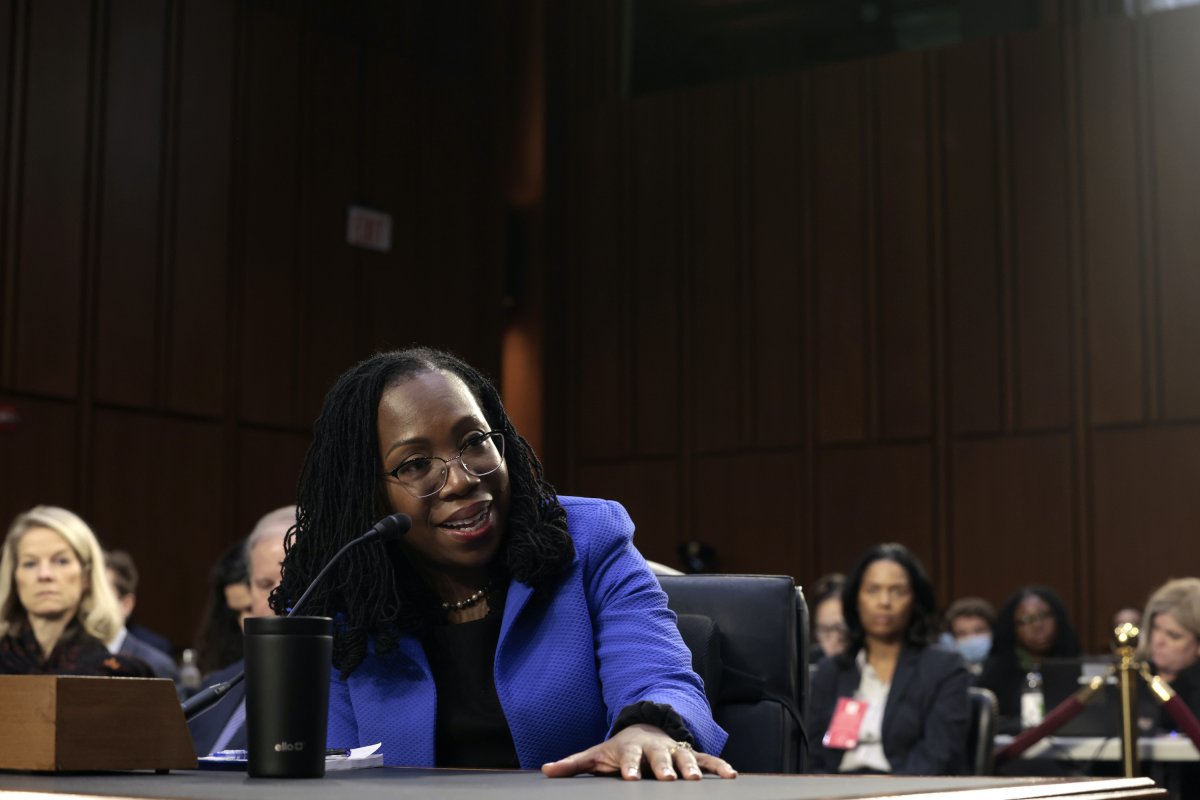Americans are concerned about crime. In fact, a recent Rasmussen poll found that crime is on the minds of 83 percent of voters heading into the November elections. This is a significant problem for Democrats, which explains the heightened level of offense they've taken to Republicans raising crime-related concerns about their nominee to the U.S. Supreme Court, Judge Ketanji Brown Jackson. As I noted in my testimony before the Senate Judiciary Committee last Thursday, questioning Judge Jackson's record on matters of crime and punishment is fair game—violent crime is at a 30-year high and her record on these matters is suspect.
As a law student, Judge Jackson used her law review note to argue that community notification requirements for sex offenders are unconstitutional and overly punitive. She concluded:
In the current climate of fear, hatred, and revenge associated with the release of convicted sex criminals, courts must be especially attentive to legislative enactments that use public health and safety rhetoric to justify procedures that are, in essence, punishment and detention.... This Note suggests that such a principled approach involves assessing the impact of sex-offender statutes and deeming the laws "punitive" to the extent they operate to deprive sex criminals of a legal right in a manner that primarily has retributive or general-deterrent effects.
Speaking of rhetoric, statements issued by various progressive organizations and elected officials after Judge Jackson was nominated all repeated some version of the claim that she will give "a voice to the voiceless and the vulnerable." But just as her law review note failed to mention victims of sex crime even once, her answers to questions from Republican senators about her record on sentencing child pornography offenders were deeply unsatisfactory. One starts to perceive a certain empathy for criminals and a certain indifference toward innocent victims.

This mentality—that criminals deserve more compassion and consideration than those they victimized, or than the public at large—is rooted in the far-left creed that the criminal-justice system is "unfair." In fact, Judge Jackson opened a 2018 opinion with a quote from a New York Times story that described the criminal-justice system as "costly and unfair."
As evidence of the system's unfairness and need for a "fundamental redesign," as Judge Jackson has termed it, reform advocates point to the race and socioeconomic status of incarcerated populations. Strikingly, however, the race and socioeconomic status of the victim is often identical to that of his or her offender. Data from the U.S. Bureau of Justice Statistics tell us that the offender was of the same race or ethnicity as the victim in 70 percent of violent incidents involving black victims, 62 percent involving white victims and 45 percent involving Hispanic victims. Furthermore, data from the same report show those belonging to households with annual incomes less than $25,000 were disproportionately more likely to be victims of violent crime. Much like victims of sex crimes or child exploitation, these innocent Americans are the truly vulnerable among us.
The view that our criminal-justice system is broken and inherently biased undermines the rule of law, respect for law enforcement officials and ultimately the safety of the public it is designed to protect. Judge Jackson's record, as well as her public statements, cast doubt about her commitment to and confidence in our criminal-justice system. Heightening this concern are clear indicators of judicial activism from her time on the bench. On several notable occasions, as I outlined to the committee, Judge Jackson has exercised her discretion to achieve desired social or political ends to the detriment of public safety.
Democrats will ignore this unsettling reality, much as they have the violent crime wave plaguing our nation. And voters will soundly reject their thinking in the midterms—but not before Judge Jackson settles into a lifetime appointment.
Steve Marshall is the attorney general of Alabama.
The views expressed in this article are the writer's own.
Uncommon Knowledge
Newsweek is committed to challenging conventional wisdom and finding connections in the search for common ground.
Newsweek is committed to challenging conventional wisdom and finding connections in the search for common ground.
About the writer
To read how Newsweek uses AI as a newsroom tool, Click here.








